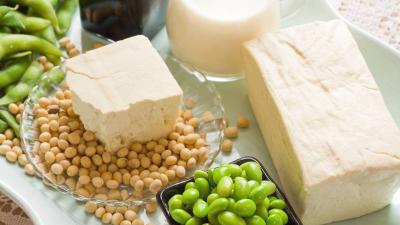New Research Disputes the Biggest Soy Myths

New research addresses myths surrounding soy intake in an article published in Critical Reviews in Food Science and Nutrition. The authors note that concerns over the safety of isoflavones, phytoestrogens found in soy products, were largely based on nonhuman animal studies that did not reflect human biology. Researchers reviewed 417 reports based on human data on isoflavone intake and endocrine-related health outcomes. Evidence suggests isoflavone intake does not adversely affect thyroid function, estrogen levels, ovulation in women, or semen levels in men. These publications also showed no negative effects in children. These results suggest neither isoflavones nor soy foods should be classified as endocrine disruptors associated with disease and adverse health outcomes. Soy products are actually associated with reduced risk of breast and prostate cancer.







